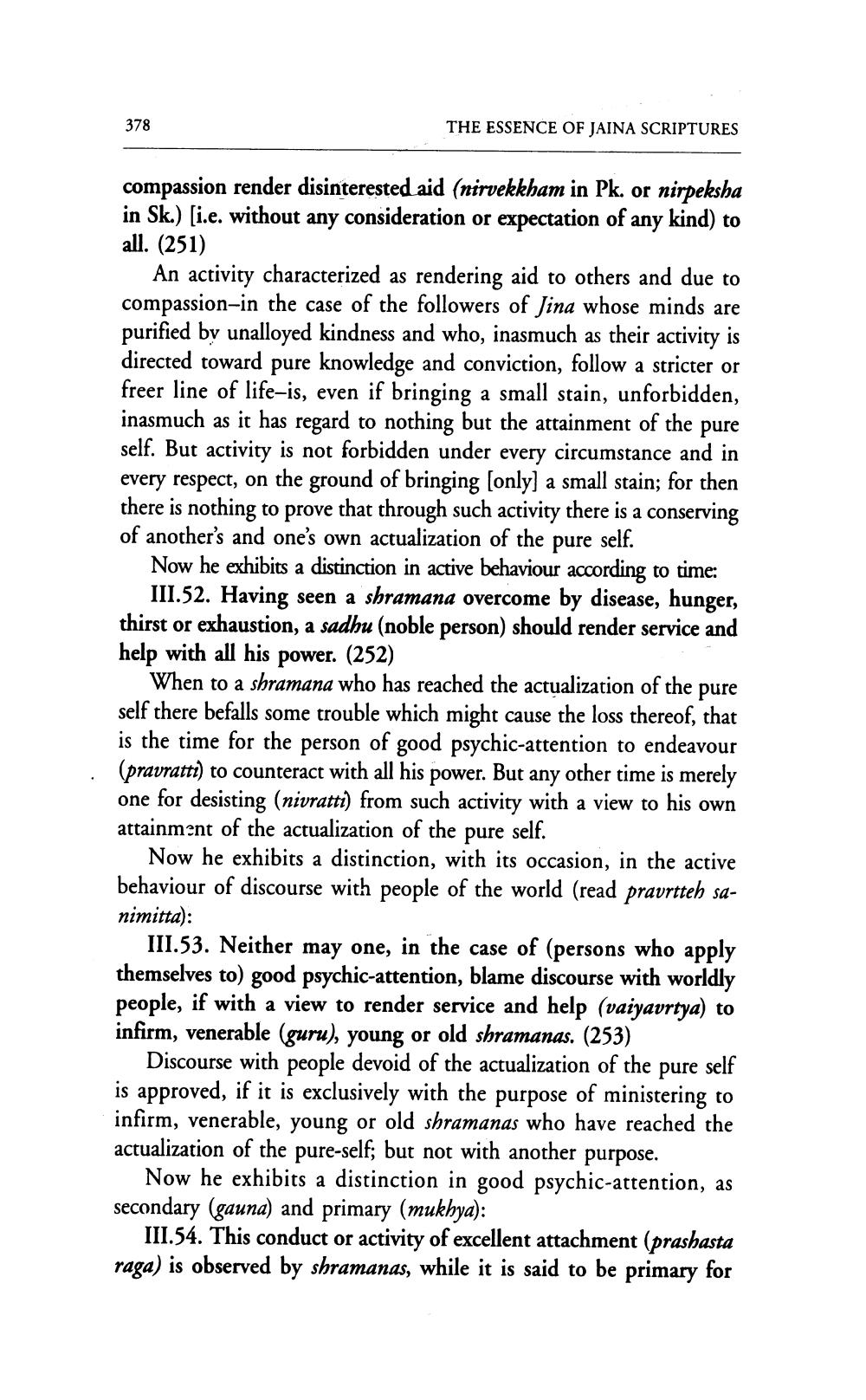________________
378
THE ESSENCE OF JAINA SCRIPTURES
compassion render disinterested aid (nirvekkham in Pk. or nirpeksha in Sk.) [i.e. without any consideration or expectation of any kind) to all. (251)
An activity characterized as rendering aid to others and due to compassion-in the case of the followers of Jina whose minds are purified by unalloyed kindness and who, inasmuch as their activity is directed toward pure knowledge and conviction, follow a stricter or freer line of life-is, even if bringing a small stain, unforbidden, inasmuch as it has regard to nothing but the attainment of the pure self. But activity is not forbidden under every circumstance and in every respect, on the ground of bringing (only) a small stain; for then there is nothing to prove that through such activity there is a conserving of another's and one's own actualization of the pure self.
Now he exhibits a distinction in active behaviour according to time:
III.52. Having seen a shramana overcome by disease, hunger, thirst or exhaustion, a sadhu (noble person) should render service and help with all his power. (252)
When to a shramana who has reached the actualization of the pure self there befalls some trouble which might cause the loss thereof, that is the time for the person of good psychic-attention to endeavour (pravratti) to counteract with all his power. But any other time is merely one for desisting (nivratti) from such activity with a view to his own attainment of the actualization of the pure self.
Now he exhibits a distinction, with its occasion, in the active behaviour of discourse with people of the world (read pravrtteh sanhmitta):
III.53. Neither may one, in the case of (persons who apply themselves to) good psychic-attention, blame discourse with worldly people, if with a view to render service and help (vaiyavrtya) to infirm, venerable (guru), young or old shramanas. (253)
Discourse with people devoid of the actualization of the pure self is approved, if it is exclusively with the purpose of ministering to infirm, venerable, young or old shramanas who have reached the actualization of the pure-self; but not with another purpose.
Now he exhibits a distinction in good psychic-attention, as secondary (gauna) and primary (mukhya):
III.54. This conduct or activity of excellent attachment (prashasta raga) is observed by shramanas, while it is said to be primary for




